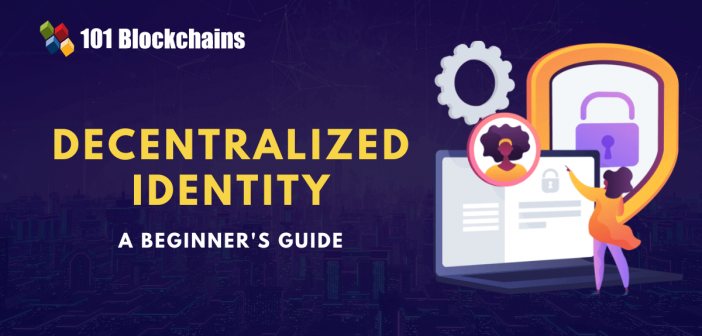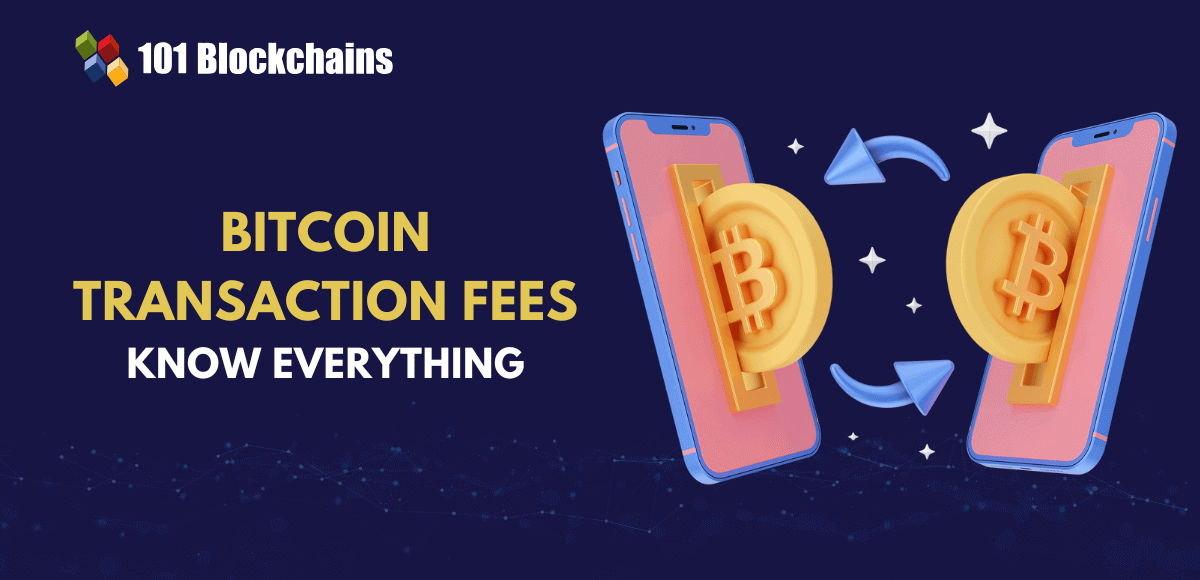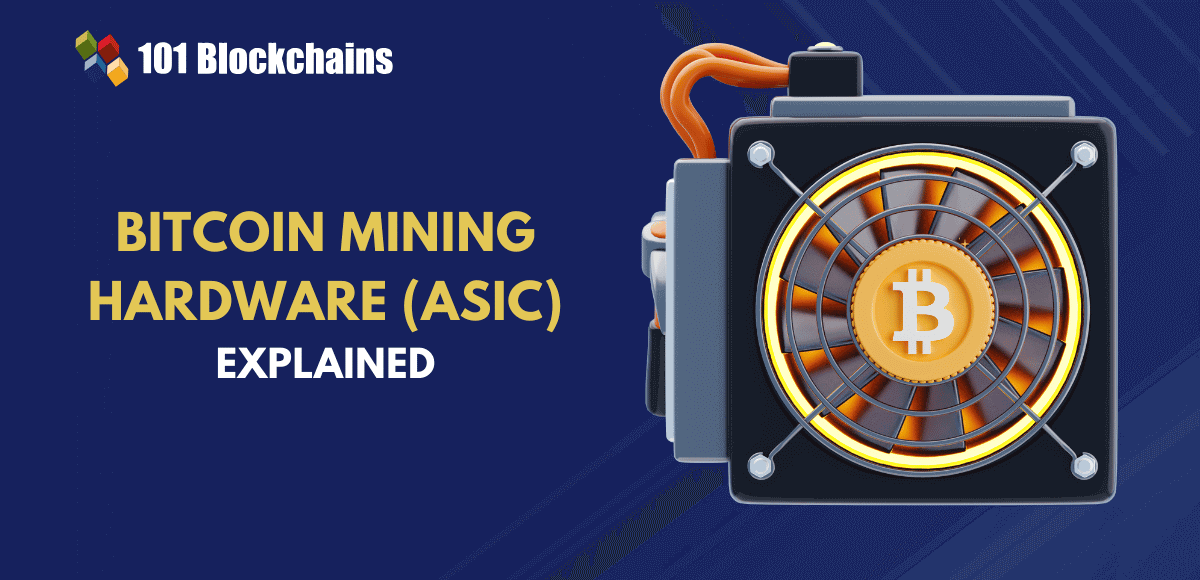Learn how blockchain truly works, master key definitions, and uncover what makes smart contracts so "smart." Dive into the fundamentals, gain valuable insights, and start your blockchain journey today!

Guides
Georgia Weston
on April 04, 2023
The Beginner’s Guide To Decentralized Identity
Identity is one of the most important factors in the digital experience of every individual. The identity of an individual offers a sense of self to the individual with the help of unique traits. On the other hand, the identity of an organization could focus on the types of products or services they offer. Similarly, bodies of authority could have a distinct identity based on their roles. As digital transformation takes the limelight, decentralized identity has emerged as a formidable necessity. Why? Take the examples of fake credentials, certificate frauds, and data breaches leading to the exposure of sensitive personal and financial information. Investigation of the causes underlying such problems would lead to setbacks in existing centralized digital identity systems.
The answers to “What is decentralized identity?” can open up new perspectives on the importance of decentralizing digital identities. Decentralized identities rely on three significant pillars, such as blockchain technology, decentralized identifiers, and verifiable credentials. The following post offers a detailed explanation of the decentralization of identity, along with examples and use cases.
Excited to learn the concept of decentralized identity on existing digital ecosystems? Enroll in Decentralized Identity Fundamentals Course Now!
Definition of Decentralized Identity
The effect of decentralization has been taking over different conventional systems with the radical adoption of blockchain-based solutions. The basics of decentralized identity explained the new approaches for introducing decentralization in identity management systems. One of the simplest explanations for decentralization of identity management systems emphasizes the flexibility of managing your identity without relying on a particular service provider. The digital identity of an individual, device or organization encompasses different types of information. Digital identity could include search history, purchase history, usernames and passwords and social security numbers.
Verifiable proof of existence is an essential requirement for accessing different types of essential services, including banking and healthcare. Interestingly, decentralized identity projects could solve many problems, such as restrictions on access to banking services due to a lack of identity. Decentralization of identity management systems ensures that you can use an internet connection and smartphones to create your digital identity.
Decentralized identification systems, also referred to as self-sovereign identity, serve as an effective approach that internet users follow in engaging and managing data. The basic premise of decentralized identity revolves around creating a democratic concept that could facilitate data utilization and management. Decentralization helps in removing the time-consuming processes for identity verification through different organizations. For example, a decentralized bank customer ID can help in verifying that the holder is a customer of the concerned bank account without asking the bank itself.
Build your identity as a certified blockchain expert with 101 Blockchains’ Blockchain Certifications designed to provide enhanced career prospects.
What is the Need for a Decentralized Identity?
The review of the fundamentals for the decentralization of identity also draws attention to the necessity of decentralization for identity management. Before you seek answers to “How does decentralized identity work?” you need to learn about the reasons which demand the decentralization of identity. Around one out of 10, registered nurses had to wait for six months or more before serving in the field in 2021.
Supply chain fraud has been becoming rampant with misappropriation schemes, primarily including fraudulent disbursements and billing. On top of it, around 95% of users do not trust social media platforms to safeguard their data. The personally identifiable information or PII of users in digital identity systems also opens up a diverse range of security threats. You can understand the necessity of decentralizing identity with the help of the following pointers.

Please include attribution to staging2.staging2.101blockchains.com with this graphic. <a href='https://staging2.staging2.101blockchains.com/blockchain-infographics/'> <img src='https://staging2.staging2.101blockchains.com/wp-content/uploads/2023/03/Decentralized-Identity-Advantages.png' alt='Decentralized Identity Advantages='0' /> </a>
-
Easier Accessibility
Do you have trouble remembering multiple usernames and passwords for accessing digital services? A review of decentralized identity examples can help you understand how decentralization removes the need for depending on a third-party service provider for digital identity.
-
Control and Ownership of Data
Decentralization plays a vital role in transforming modern identity management systems with the removal of third-party control. It helps in retaining the ownership rights of a user, thereby introducing the precedents for self-ownership and control of data. The decentralized identity blockchain connection ensures that users can control what information they want to share with others and its usage. On top of it, innovative developments such as zero-knowledge proofs or ZKPs have introduced better flexibility in restricting the identity data you have to share.
Curious to learn about the value advantages of ZKPs for blockchain security? Enroll now in Zero Knowledge Proofs (ZKP) Masterclass.
-
Uninterrupted Authentication
The problem of multiple websites in web2 focuses on the necessity of multiple usernames and passwords. On top of it, highly private identifiers also add up to the complexity of identity management and authentication. Therefore, decentralized projects can serve as a viable solution with the use of a single identity to access different digital services.
-
Building Trust between Users and Organizations
The necessity for decentralization of identity management systems points to the benefits of balancing privacy, validation and ownership. Organizations could use on-chain verification to check the authenticity of the digital identity of a specific user without time-consuming processes.
-
Security
The decentralized identity blockchain relationship also serves a crucial advantage in the form of cryptographic security. With the help of cryptography, blockchain makes digital identity data immutable, thereby establishing safeguards against data tampering.
Working of Decentralized Identities
The next important thing you need to understand about decentralized identities points to the working mechanisms. How does decentralized identity work? You can find credible answers to the question with a review of the basic components of decentralized identities. Here are the integral elements which define the mechanisms for decentralizing identity management systems.

Please include attribution to staging2.staging2.101blockchains.com with this graphic. <a href='https://staging2.staging2.101blockchains.com/blockchain-infographics/'> <img src='https://staging2.staging2.101blockchains.com/wp-content/uploads/2023/03/Decentralized-Identity-Elements.png' alt='Decentralized Identity Elements='0' /> </a>
-
Blockchain
The first thing you come across in decentralized identities is blockchain. The decentralized identity blockchain interplay has everything you need to understand how distributed ledger technology works for digital identity. The distributed ledger of the blockchain helps in storing data with cryptographic security, making it impossible for anyone to change identity data. On the other hand, blockchain also offers scalability through which you can use a single digital identity across multiple platforms. Most important of all, blockchain uses a consensus mechanism that ensures verification of identity details before storing identity data on blocks.
-
Decentralized Identity Wallets
Another important component in the working of decentralized identity explained for beginners would focus on identity wallets. Identity wallets are apps that could help users in storing their identity data and credentials. Identity wallets are tailored as on-chain applications for providing storage services suited to verifiable credentials or VCs.
Curious to learn about blockchain implementation and strategy for managing your blockchain projects? Enroll Now in Blockchain Technology – Implementation And Strategy Course!
-
Decentralized Identifiers
Decentralized Identifiers, or DIDs, are another important component in the decentralized identity ecosystem right now. DIDs help in the pseudonymous identification of users through the representation of user identities as decentralized domain names and alphanumeric letters. Conventional identifiers such as an email address or social media account depend on third-party service providers.
On the contrary, users can issue, hold and control decentralized identifiers. The storage of DIDs on blockchains ensures that they are unique, cryptographically verifiable, and have higher availability. Decentralized identifiers can be related to different entities, such as individuals, government institutions, and business organizations.
-
Verifiable Credentials
Verified Credentials, or VCs, are another prominent example of decentralization of identity. Reviews of answers to “What is decentralized identity?” can showcase the ways in which VCs can decentralize identity. Verifiable credentials are the decentralized versions of certifications, licenses, and other legal documents, which you can store in decentralized wallets. The working of verifiable credentials revolves around three distinct entities such as the holders, issuers, and verifiers.
The holders of verifiable credentials refer to the owners of the credentials.
Issuers in VCs are the organizations that approve the credential for the holder. The university would serve as an example of the issuer for the decentralization of degree certificates as verifiable credentials.
Verifiers are also a crucial highlight of decentralized identity projects for creating VCs. The verifier could be anyone ranging from an employer to a platform. Employers could verify the academic credentials of an individual, while a platform could verify the identity of the individual for accessing specific services.
Start learning Blockchain with World’s first Blockchain Skill Paths with quality resources tailored by industry experts Now!
Standardization of Decentralized Identity
The overview of answers to “How does decentralized identity work?” provides a comprehensive impression of the essential components and their roles. However, the growth of decentralized identities would depend on the prospects for standardization. Some of the notable organizations which have been actively involved in creating standards for decentralized identities include the following.
-
Decentralized Identity Foundation or DIF
The DIF is an engineering-centric organization that focuses on developing the foundational elements required for achieving an open ecosystem for decentralized identities alongside ensuring interoperability.
-
World Wide Web Consortium or W3C
Another prominent standardization authority for decentralized identity projects points to the World Wide Web Consortium or W3C. The W3C Digital Identity Community Groups is a dedicated forum for the identification and resolution of digital identity issues in the real world. It aims to the development of a trusted ecosystem for digital identity, with an emphasis on privacy, scalability, mobility and interoperability.
-
Internet Engineering Task Force or IETF
Internet Engineering Task Force or IETF is an open international community including network designers, researchers, vendors, and operators working on developments in internet architecture.
Start your blockchain journey Now with the Enterprise Blockchains Fundamentals!
How Are Decentralized Identifiers Important for Digital Identity?
The simple definition of decentralized identifiers in the explanation for how decentralized identity examples work offers a basic overview of decentralized identifiers. DIDs are an effective instrument for self-identification or identifying anything else online without depending on central organizations. Decentralized identifiers offer the flexibility of proving your identity without relying on a third-party service provider.
Centralized identifiers such as usernames, emails, and passwords used for accessing websites, apps, and other online services have resulted in multiple security issues. Some of the prominent issues associated with centralized identifiers include identity theft and unauthorized access to personal information. On the contrary, decentralized identifiers can solve all these problems with their distinct traits. Here are the different ways in which decentralized identifiers can improve identity access and management.
Decentralized identifiers are one of the best uses of decentralized identity blockchain systems with the facility of globally unique identifiers. DIDs feature a string of numbers and letters, which serves useful for identifying blockchain addresses and does not rely on any third-party organization.
Decentralized identifiers can serve as a universally recognized standard for facilitating the exchange and verification of digital credentials.
Owners can also prove their control over DIDs through the use of cryptographic techniques.
Decentralized identifiers have one or multiple private-public key pairs and do not contain the user’s wallet information or personal data.
DIDs also facilitate private and secure interaction between two parties with the flexibility for verification, regardless of location and time.
Use Cases of Decentralized Identity
The fundamentals of how decentralized identities work and the significance of DID and verifiable credentials provide a viable impression of the decentralized identity ecosystem. Now, you must also learn about the different use cases of decentralized identities and how they can transform conventional processes.
First of all, decentralized identities in the supply chain can resolve the problems of supply chain fraud. Verifiable credentials can ensure restrictions on the forgery of documents while improving the speed of manual verification.
In the case of finance, the answers to “How does decentralized identity work?” would draw attention to the KYC checks and credit score evaluations. On top of it, financial service users have limited control over the security, sharing, and accessibility of data by third-party agencies. The data in decentralized identifiers and verifiable credentials is completely tamper-proof or immutable, thereby eliminating the control of centralized intermediaries.
The applications of decentralized identity explained in the healthcare sector would focus on issues of license verification of healthcare providers. Traditional verification methods could create significant delays in filling up urgent vacancies. Verifiable credentials could showcase the benefits of decentralized identities in the domain of healthcare alongside enabling the advantage of interoperability.
Curious to know whether your digital identity is safe and secure? Check the detailed guide on Is Your Digital Identity Safe And Secure!
Advantages of Decentralized Identities
The most sought-after highlight in a discussion on decentralized identities would refer to their advantages. One of the striking aspects of decentralized identities is that they can benefit organizations, users as well as developers. Let us take a look at how decentralized identities can help different entities.
-
Organizations
Organizations could use decentralized identity projects for faster verification of identity information and avoid concerns of certificate fraud. In addition, public-key cryptography with decentralized identifiers can help in ensuring better data security.
-
Individuals
The effect of decentralized identities on individual users is evident in the power to exercise complete control and ownership of data. Individual users could prove their claims without the need to depend on centralized agents. On top of it, the benefits of decentralized identity explained to users would also point to preventing concerns about tracking devices and data. Decentralized identities can help in preventing concerns of compromises in their digital identity.
-
Developers
Developers could also leverage decentralized identities to their advantage by generating new opportunities for improving user experiences. Decentralized identities remove the necessity for passwords alongside inefficient authentication processes, which can improve the user experience. Most important of all, developers could program their solutions for requesting data from users with safety while addressing the important requirements for data privacy.
Start learning Blockchain with World’s first Blockchain Career Paths with quality resources tailored by industry experts Now!
Conclusion
The detailed introduction to decentralized identity proves its necessity in the emerging world of opportunities. Decentralized identities can help in removing the concerns of third-party organizations exercising influence over your digital identity. With the help of decentralized identities such as DIDs and verifiable credentials, you can create and hold your own digital identity.
Users and organizations don’t have to rely on third-party services for identity verification. The advantages of decentralized identities can open up a new age of seamless and interoperable access to the internet. Learn more about the implications of decentralized identities and their role in defining the future.







